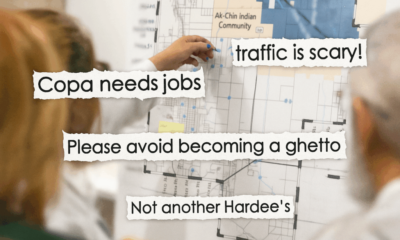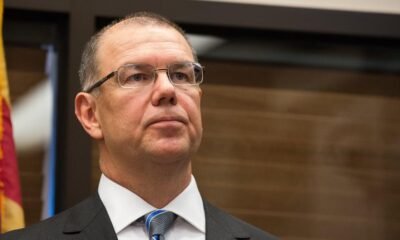arizona
Rockafellow Pushes for Public Transit Subsidies in Tucson’s Underserved Communities

Leighton Rockafellow Jr., an attorney, is running as a Democratic candidate for the Ward 6 seat on the Tucson City Council. His campaign comes at a crucial time as Tucson navigates fiscal challenges stemming from the COVID-19 pandemic.
Since March 2020, transit services including Sun Link, Sun Tran, and Sun Van have been fare-free, funded initially by federal COVID-19 aid. Prior to this initiative, the city collected about $9 million in fares, constituting 13% of its annual operating budget of $65 million.
With the expiration of federal funds in 2022, Tucson now depends on a combination of its general fund, sponsorship from Tucson Medical Center, and hotel bed taxes to maintain this fare-free system. However, a projected budget shortfall of $28 million for Fiscal Year 2026 has sparked discussions about necessary cuts, including the potential discontinuation of five bus routes to save roughly $1 million annually.
In a recent community budget survey, the prospect of reinstating transit fares emerged as the top suggestion for generating revenue. This reflects a growing consensus that sustaining fare-free transit may no longer be viable without a reliable funding source.
The implications of reinstating fares are significant. While some families may continue to use public transit and pay for the service, others might be financially strained by such changes. This necessitates a robust needs-based program to ensure that vulnerable communities can still access transit services.
Implementing a tiered fare system that includes expanded subsidies for low-income riders could serve to enhance accessibility and inclusion. This approach allows those who can afford to pay to do so, mitigating the financial burden on those who cannot.
Historically, Tucson provided subsidies for Medicare recipients and low-income residents. Learning from other cities, such as Seattle’s free fares for youth, could inspire a more equitable system. Simplifying the application process for subsidies to avoid in-person visits would further ensure accessibility.
As Tucson grapples with budget limitations, a return to paid fares coupled with targeted subsidy programs may help preserve public transit’s viability. Should dedicated funding become available in the future, the discussion around free fares could be revisited.


















